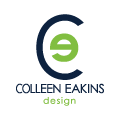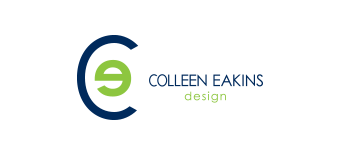SEO and SEM Vocabulary Terms You Must Know To Succeed!
If you are just getting started in the Search Engine Optimization or Search Engine Marketing industry, you undoubtedly have a bit of a learning curve ahead of you!
In this vertical – more than any other industry vertical – you’ll come to learn all types of acronyms and jargon to describe almost everything!
If you’ve never given much thought to vocabulary like keyword density, internal links, landing pages, website crawlers, SERPs, local results, conversion goals, and other phrases, that’s about to change!
To help you get a better understanding for some of the most widely used vocabulary words used in Search Engine Optimization and Search Engine Marketing, here is a short glossary of Industry related terms you need to know.
A/B Test or Testing
A/B Testing is conducted by showing two different layouts of the same web page to visitors. The software is used to track behavioral differences on Page A versus Page B. A/B Testing determines which web page is more efficient at making conversions or sales.
301 Redirect
A 301 Redirect Message gets displayed when a URL you’re attempting to access is permanently unavailable. This message indicates the destination URL changed location and won’t be shown again.
AdWords
AdWords is Google’s advertising network. AdWords gets used for reaching markets via display and video ads on their partner networks.
302 Redirect
A 302 Redirect is a form of redirection commonly used when an URL has temporarily changed location.
Anchor Text
Anchor text are the words used in the text area of a clickable hyperlink. Anchor text usually describes the subject of the resource to which it links.
Algorithm
An algorithm is search engine technology that’s used to determine a site’s ranking on search engines.
Black Hat SEO
Black Hat SEO is used to describe Search Engine Optimization tactics that do not adhere to ‘best practices’ in the Industry.
Backlink
A Backlink is used to describe any link to or from another referring website or resource.
Bounce Rate
Your Bounce Rate is the percentage of visitors that only look at one web page and don’t view or visit any other pages.
Conversion Rate
A Conversion Rate is established by counting the number of visitors that complete a desired action or goal.
Cost Per Click (CPC)
Cost Per Click Advertising, also known as Pay Per Click (PPC), is a type of advertising where the advertiser pays a set fee each time their ad gets clicked.
CPM (Cost Per Thousand)
CPM is a type of online advertising where advertisers pay a set fee per 1,000 ad displays.
CPA (Cost Per Acquisition)
A CPA Ad is measured by the total cost of each sale or leads throughout the sales funnel and ad campaign.
CTR (Click Through Rate)
Click Through Rate is established by calculating the percentage of users that click an ad.
CSS (Cascading Style Sheets)
Cascading Style Sheets is a methodology for adding styles and changing document appearance seamlessly.
Domain Name
A Domain Name is the website address for the site you’re visiting.
(For example Facebook.com or Yahoo.com)
HTML (Hypertext Markup Language)
HTML is the website code that search engine crawlers and robots read and disseminate.
Indexed Pages
Indexed Pages are single pages on a website that get returned as results by search engines.
Infographic
Infographics are designed to illustrate various facts in an easy to understand and visually appealing way.
Keywords
Keywords are used to describe words or phrases people enter into search engines to find relevant results. Keywords are used for both advertising campaigns and to rank highly in organic search results.
Keyword Density
Keyword Density is used to describe the number of times a specific word or phrase gets used on a blog or a page. Keyword Density is calculated as a percentage by counting the number of times the keyword was used on a page to the total number of words on the page.
Keyword Research
Keyword Research is the process of choosing keywords or phrases that people are most likely to search for in any given market niche.
KPI (Key Performance Indicators)
Key Performance Indicators are methodologies for measuring online marketing goals.
Landing Page
A Landing Page is a strategically designed page that is optimized for results and conversions when a visitor ‘lands’ on the page.
Local Search Result
Local Search Results are search results that give preferential rankings to local companies, businesses, and service providers.
Long Tail Keywords
Long-Tail Keyword phrases are search terms that include more than two or three words.
Meta Description
Your Meta Description is a couple of sentences that display in search results describing the content of a page.
Organic Search Results
Also called “Natural” Search Results, Organic Search results are the unpaid search results. These listings appear underneath paid advertisements on the search results page.
Query(ies)
A Query (or queries) is used to describe the keyword or keyword phrase a searcher inputs when using a search engine.
Search Engine Marketing (SEM)
Search Engine Marketing is used to describe the different advertising techniques used to increase the visibility and ranking of a website.
Search Engine Optimization (SEO)
Search Engine Optimization is used to describe all of the processes used to assist a site in ranking higher in search engines.
Search Engine Ranking Page (SERP)
This acronym is used to describe the results page that web searchers see after they’ve put search queries or keywords in the Search Box.
Sitemap
A Sitemap is a page that offers search engine robots and crawlers access to all website pages on a website.
Social Platforms
Some of the most popular Social Platforms used today include Facebook, Twitter, Pinterest, LinkedIn, Reddit, and others.
Website Traffic
The overall count of visitors, spiders, and robots that visit your website.
User Engagement
User Engagement is the measurement of how people engage with your website once they’ve visited. Engagement is calculated using some factors including actions taken on the page, length of visit, etc.
We hope you found this glossary of SEO and SEM terms helpful and thanks for reading!

I’m a Digital Marketer & Freelance Writer with a penchant for all things forward-thinking and positive. I’m a fan of abundance and progress.




